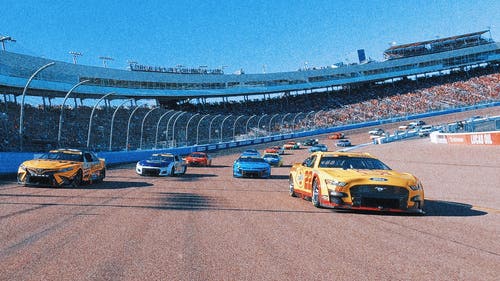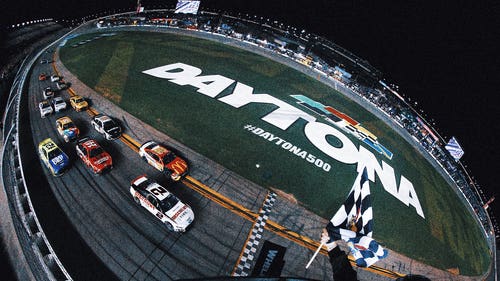
How does a NASCAR appeal work? Here's the process that awaits Austin Dillon
Richard Childress Racing’s appeal of the penalty to Austin Dillon will occur Wednesday.
RCR is appealing NASCAR’s decision to revoke Dillon’s automatic berth to the playoffs for his controversial Richmond win in addition to 25 points and a three-race suspension to spotter Brandon Benesch. Dillon had contact with two drivers — Joey Logano and Denny Hamlin — in the last two corners on his way to the win, and NASCAR determined the aggressiveness of those moves resulted in a finish that included actions detrimental to stock-car racing.
"I feel pretty good about it," Dillon said about the appeal. "The appeal process isn't easy, but we will do a good job on our side to try and cover all of our bases and see what the outcome really is."
The NASCAR appeals process is detailed in the NASCAR rulebook.
Here’s a summary of the steps:
-- NASCAR has a two-step appeals process for regular appeals. The first is an appeal with three appeals panel members. If a team loses that appeal, it can appeal to the final appeals officer (if NASCAR loses an appeal, the process is over; NASCAR cannot appeal the panel decision to the FAO). For race disqualifications, there is only one appeal heard by one panelist, who can be the final appeals officer.
--Teams have three business days to appeal unless it is an appeal that has immediate playoff/championship implications or a race disqualification, and then it's one day. The cost of a regular appeal in the Cup series is a nonrefundable $2,500; for race disqualification appeals, it’s a non-refundable $5,000.
--Appeals are supposed to be heard within 30 days (except for expedited appeals). Teams must get 48 hours notice of when the appeal will be heard unless all sides agree to waive that requirement.
--NASCAR has an appeals panel of about 20 members who can hear appeals. Their experience in the industry ranges from marketing and track promotion to former racers to crew chiefs, engine builders and mechanics. NASCAR typically chooses at least one panel member whose area of expertise coincides with the penalty issued.
--NASCAR and the appellant can submit appeals summaries and any relevant photos, diagrams, charts, etc. Those summaries are not to be made public.
--Both sides are in the appeals room the entire time and can hear the testimony while a witness, as designated by either side, is only in the room for his/her testimony. The appeals panel can ask questions, but witnesses are not questioned by the opposing side.
--Burden of proof: During an initial appeal, the burden of proof is on NASCAR. During a final appeal, the burden of proof switches to the team.
--Standard of proof: NASCAR uses the wording typically used in civil trials of "more likely than not." In other words, it’s not "beyond a reasonable doubt," like in a criminal trial.
--In making the decision, it’s a two-step process: First, the panel determines if a violation occurred. Second, if a violation occurred, the panel determines whether the penalty should be modified. The panel has the option to increase or decrease the penalty, though the appeals panel can only adjust — it cannot eliminate — a portion of a penalty if it determines the rule was violated. For instance, if the penalty included points reductions, monetary fines, and suspensions, all three elements of the originally assessed penalty must remain, but the amount of each element could be adjusted within the minimum and maximum penalty ranges for the violation.
--The appeals panel decision doesn't have to be unanimous, just a majority among the three. If they can’t come to a decision, the penalty is automatically appealed to the final appeals officer.
--The final appeals officer for 2024 is Langley Speedway owner Bill Mullis. If he can’t hear a final appeal, then the first alternate is Chris Harris, a Daytona Beach-area attorney with extensive motorsports experience.
Bob Pockrass covers NASCAR for FOX Sports. He has spent decades covering motorsports, including over 30 Daytona 500s, with stints at ESPN, Sporting News, NASCAR Scene magazine and The (Daytona Beach) News-Journal. Follow him on Twitter @bobpockrass.











